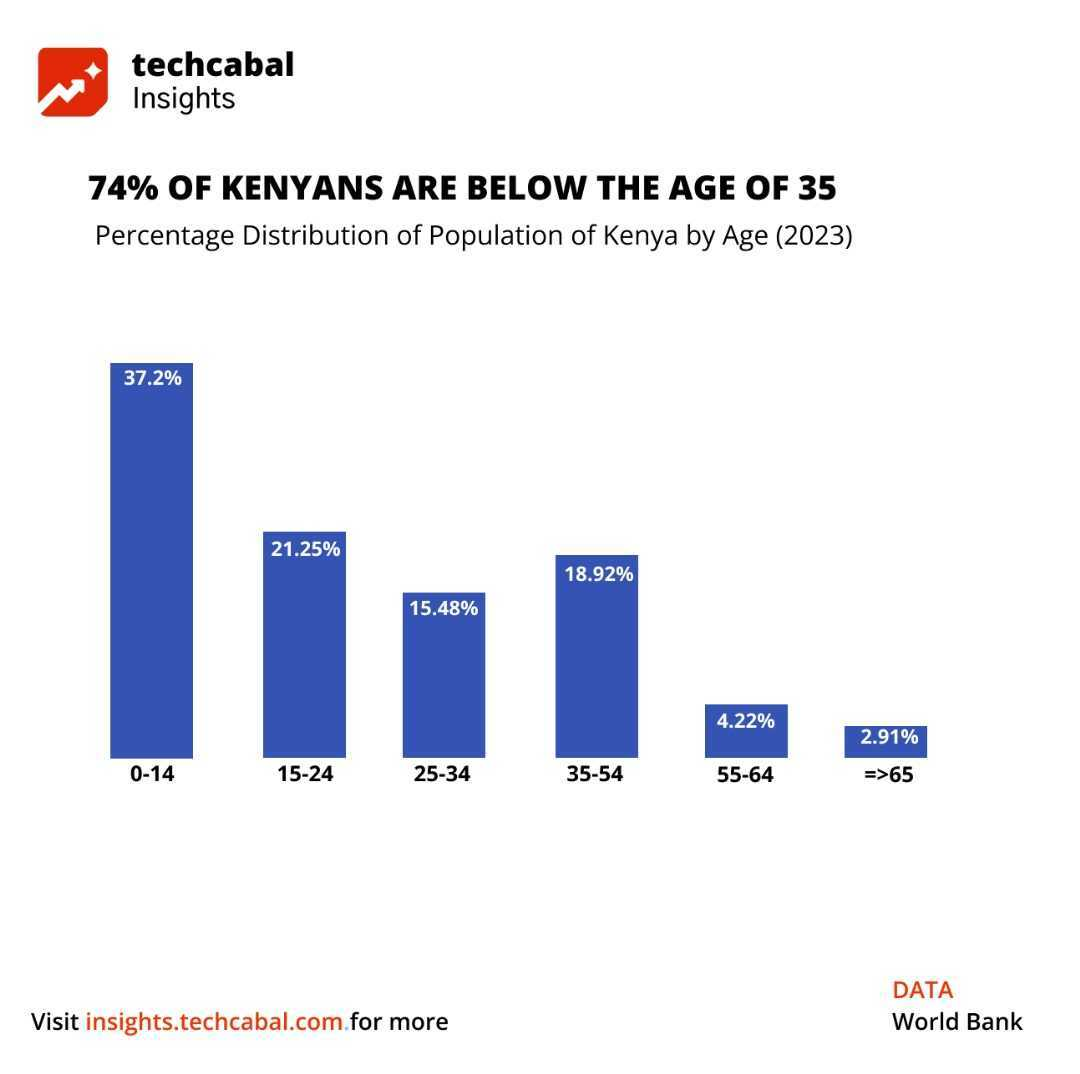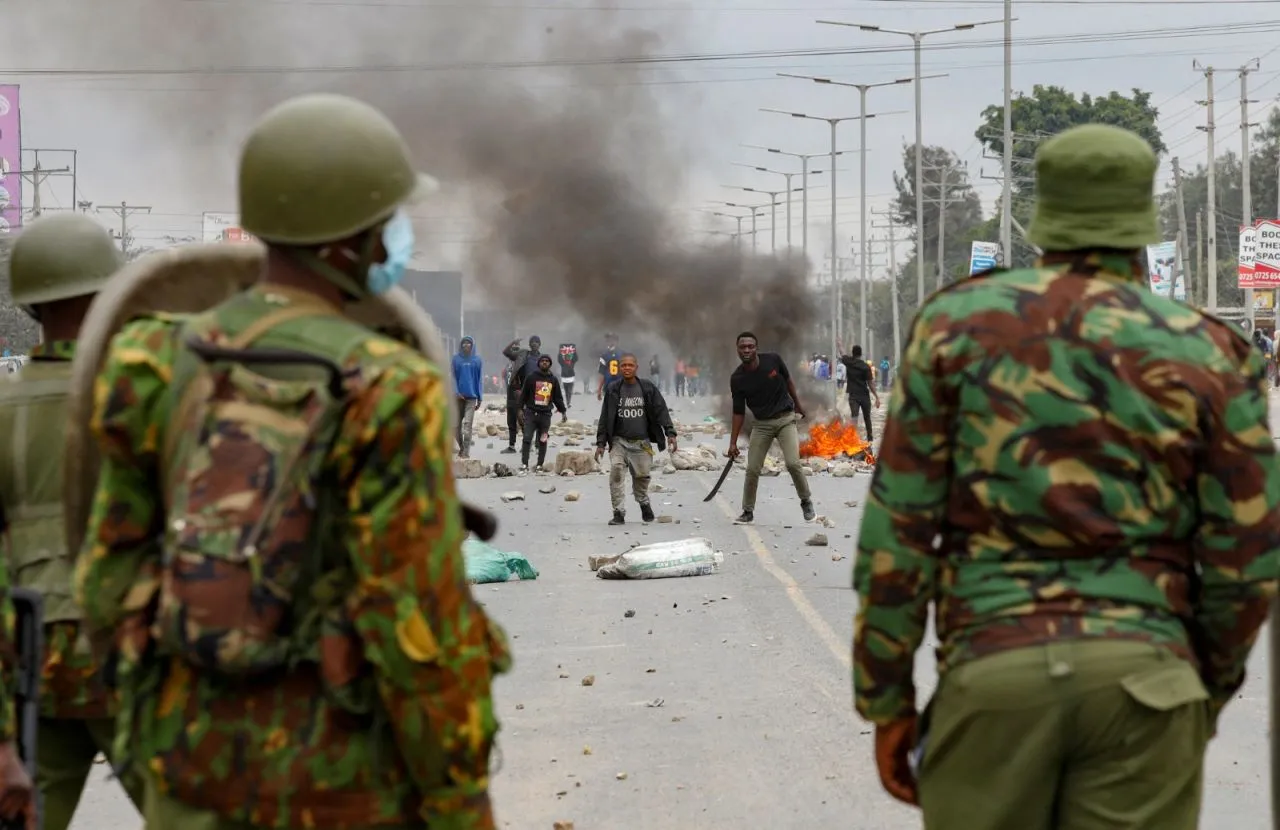
First published 21 July, 2024
What next Kenya?
Since June 18, Kenyans have been protesting against the 2024 Finance Bill and demanding the resignation of President William Ruto. The tax-heavy Finance Bill proposed new levies on bread, motor vehicles, and sanitary towels, among other basics—a move most people felt would make life more expensive in an economy already struggling with high inflation.
Until Friday, the majority of Kenyans believed that the protests witnessed in the past month would allow Ruto to reset his fledgling government and win back lost support. These hopes were dashed after he reappointed six cabinet members he dismissed a week ago. Protesters have vowed to continue with the weekly demonstrations to push for reforms in the police, fight corruption, and ultimately force Ruto to resign. While it’s unlikely Ruto will resign, the cash-strapped government will have to give more concessions to the angry youth—like step up the war on corruption and waste of public resources, which Kenyans feel is slowing the country’s growth. T
More than ever, Kenyan youth have made it known to the political class that they cannot be ignored. In future, policymakers and the country’s legislature will try to have some public participation in making key decisions and policies. While the constitution requires all laws to involve public participation, the East African nation’s legislature and executive often ignore the public’s views. For instance, in the weeks leading up to June, the parliamentary finance committee sampled views from the public and industry associations on the Finance Bill but failed to review most of the controversial taxes in the Bill. In the coming years, to prevent backlash and a repeat of what has been happening, leaders will accommodate the public’s view completely in legislative decisions.

Next Wave Chart on Kenyan Population Distribution. Image | TC Insights
Amid public outrage, an important political discourse that could alter how voters elect their leaders has begun. Like in many African countries, ethnic mobilisation is key to winning a presidential election. However, the debate on how the protests have blurred ethnic boundaries and shifted to issue-based politics is too loud to ignore. In the coming elections, issues on healthcare, education, sanitation, employment and infrastructure will be part of politicians’ agendas. This should challenge voting along ethnicity lines used by leaders since Kenya gained its independence in 1963.
The issue of debt has also featured in the current protests. Kenyans are asking for fiscal responsibility to help the country manage its ballooning debt. Kenya’s public debt has grown from $15.5 billion (KES2 trillion) to $77.8 billion (KES10 trillion) in under a decade. Philip Kisia, a leadership and governance expert, said it would be hard in the future for the National Treasury to borrow without a clear plan on how to spend it. For instance, Kenya’s auditor-general, Nancy Gathungu, revealed on July 9 that there are no projects to show for $7.7 billion (KES1 trillion) borrowed.
Next Wave continues after this ad.
Kenyans’ anger is also directed at the International Monetary Fund (IMF) which they accuse of making austerity proposals that affect mostly the poor and slow economic growth. IMF has delayed fresh funding under the Extended Credity Facility (ECF) and Extended Fund Facility (EFF) reform programmes that is meant to help the country manage the debt distress following the unrest. In the last six reviews to monitor the country’s progress on the reforms, the multilateral lender proposed increasing taxes on goods and services to boost revenue targets. However, the IMF has done very little as part of the reforms to push the government to cut spending, which the majority of Kenyans feel is the problem. Given the upheaval that the tax increase proposals have caused, further IMF reviews will likely drop suggestions on raising taxes to improve Kenya’s finances.
In the short term, Ruto will survive the biggest threat yet to his presidency. However, the deep-seated issues triggered by the controversial Finance Bill remain. Kenyans are yet to see action on corruption and key governance issues, like appointing state officials based on merit. With Ruto’s move to retain six of the former members of his cabinet which Kenyans had accused of being corrupt and inefficient, the mass protests are likely to continue. Who will blink first?
Adonijah Ndege
Senior Reporter, TechCabal.
Feel free to email adonijah[at]bigcabal.com, with your thoughts about this edition of NextWave. Or just click reply to share your thoughts and feedback.
We’d love to hear from you
Psst! Down here!
Thanks for reading today’s Next Wave. Please share. Or subscribe if someone shared it to you here for free to get fresh perspectives on the progress of digital innovation in Africa every Sunday.
As always feel free to email a reply or response to this essay. I enjoy reading those emails a lot.
TC Daily newsletter is out daily (Mon – Fri) brief of all the technology and business stories you need to know. Get it in your inbox each weekday at 7 AM (WAT).
Follow TechCabal on Twitter, Instagram, Facebook, and LinkedIn to stay engaged in our real-time conversations on tech and innovation in Africa.


























